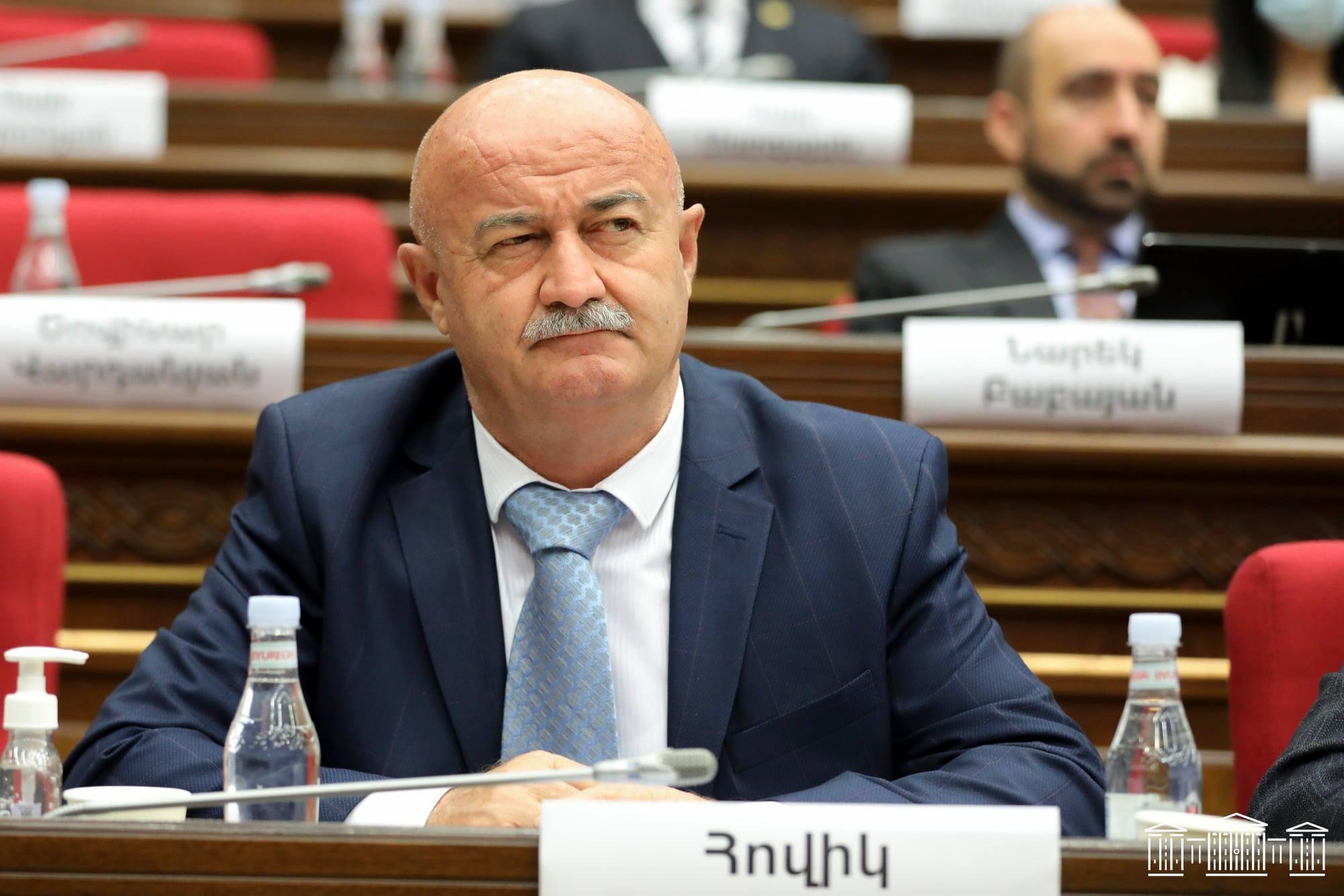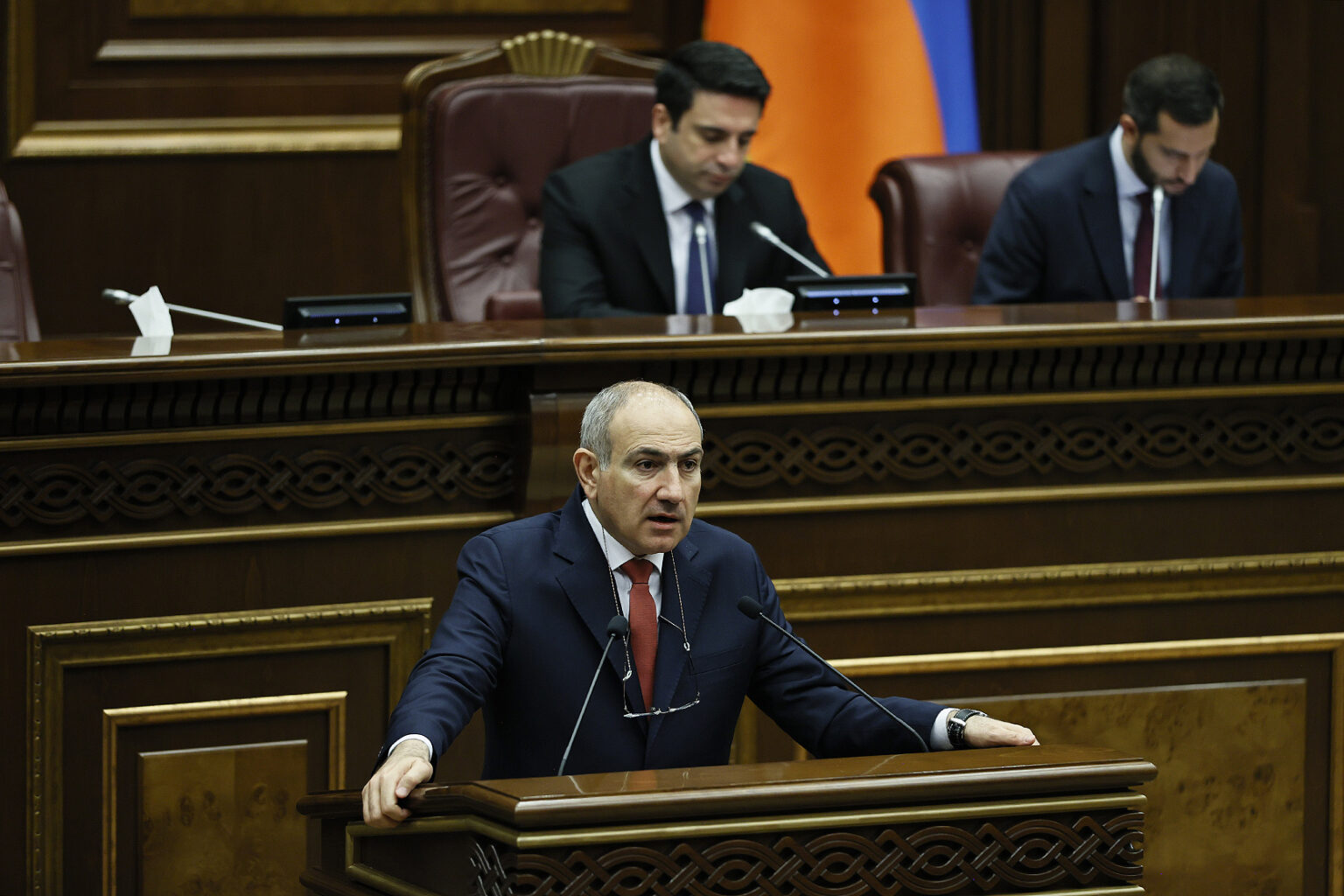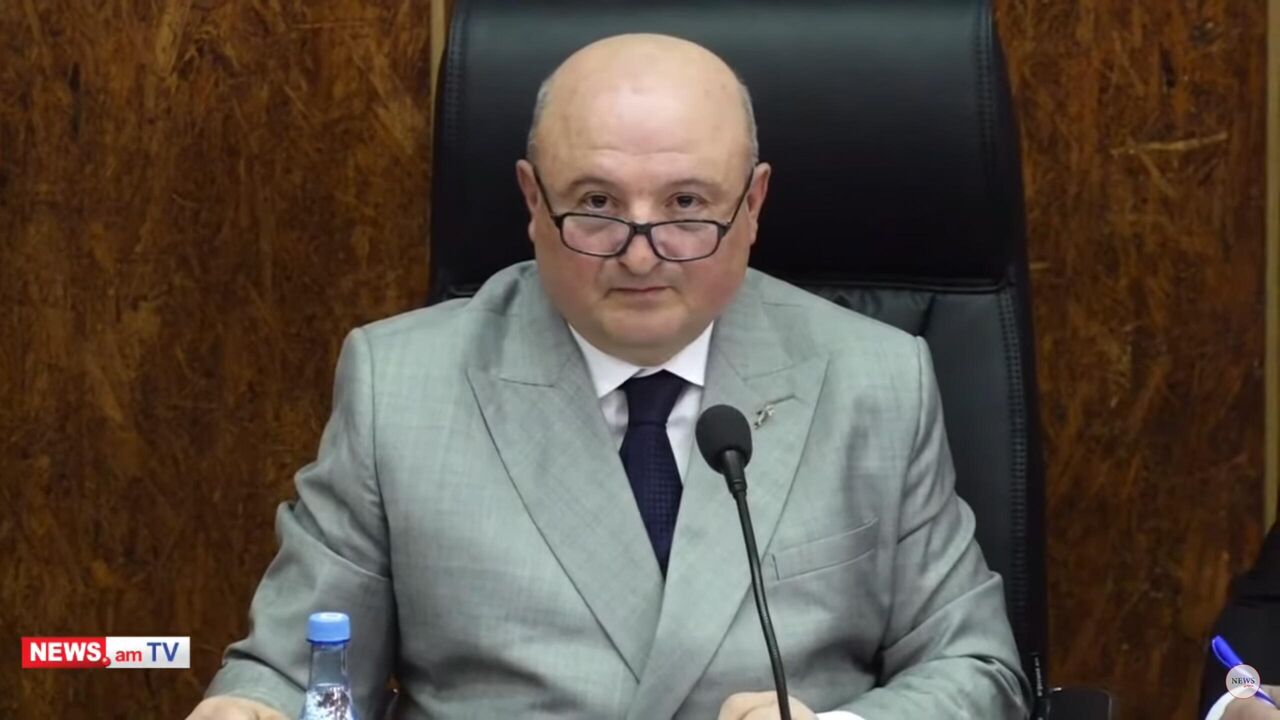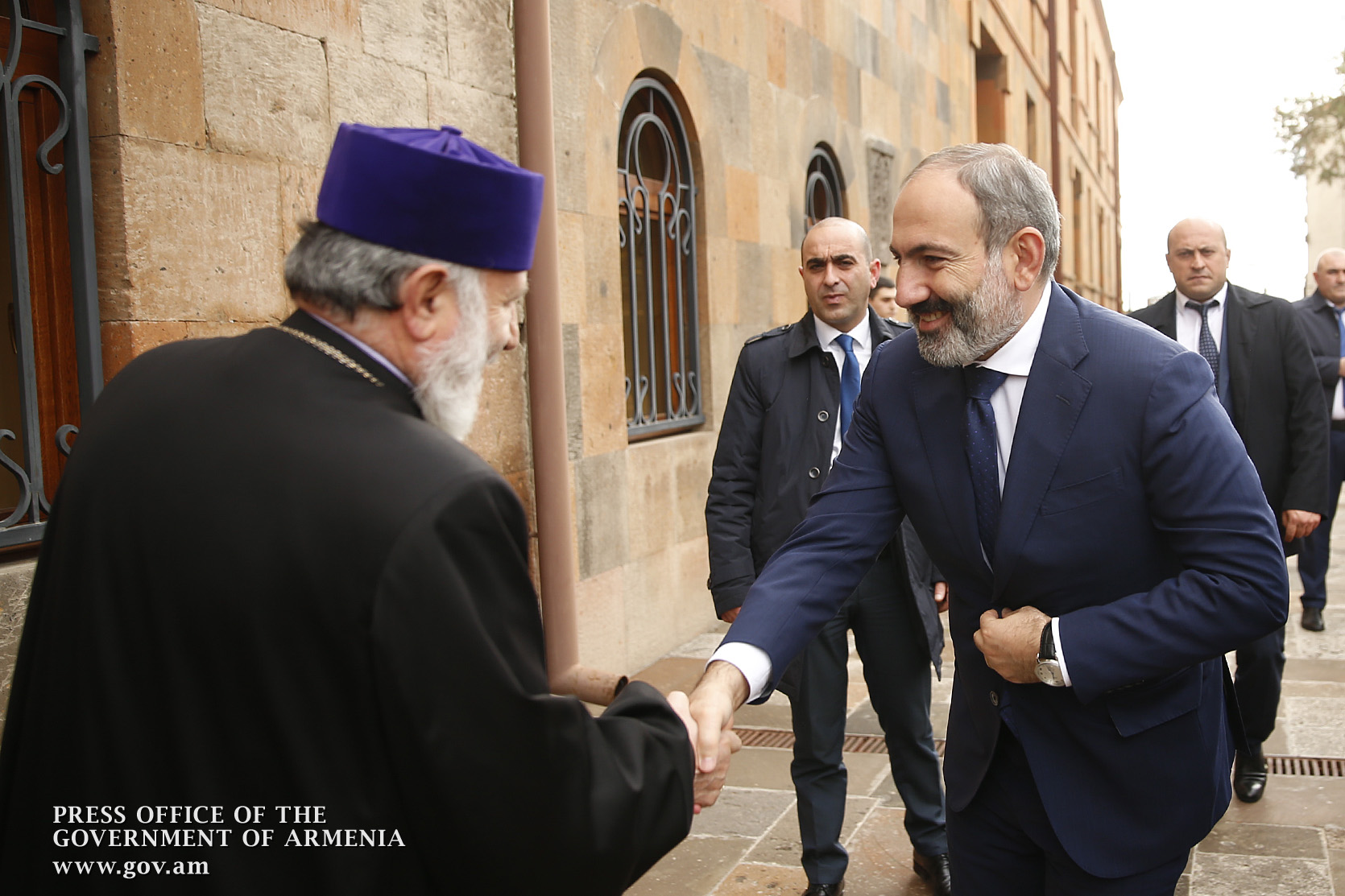Impeachment proceedings against Pashinyan: Armenia debates whether opposition can even initiate them
Armenian opposition seeks to impeach Pashinyan
Armenia’s parliamentary opposition is actively discussing the possibility of initiating impeachment proceedings against Prime Minister Nikol Pashinyan.
The I Have Honour faction, led by former president Serzh Sargsyan, has nominated its own candidate for prime minister — Davit Hambardzumyan, a Republican Party council member and mayor of the town of Masis, a figure largely unknown to the Armenian public. The Armenia (Hayastan) faction, led by another former president, Robert Kocharyan, has announced its readiness to support the initiative with the signatures of its 28 MPs.
To launch the procedure, the backing of at least one-third of all MPs is required. Nominating a candidate for prime minister is also mandatory. In total, 36 signatures are needed to begin the vote of no confidence. However, the two opposition factions combined currently hold only 34 seats.
Representatives of the ruling Civil Contract faction have ruled out any participation in the process, stating that elections are the only legitimate path to changing power. Two MPs expelled from the ruling party — Hovik Aghazaryan and Hakob Aslanyan — have already said they will not join the I Have Honour initiative. Independent MPs Gegham Nazaryan (formerly of the “Armenia” faction) and Ishkhan Zakaryan (formerly of I Have Honour) have yet to state their positions.
It is important to note that 36 MPs can only initiate impeachment proceedings. To pass a motion, at least 54 out of 107 MPs must vote in favour — which is impossible without support from the ruling party. Nevertheless, members of the I Have Honour faction insist that impeachment remains “the most likely tool” for removing the prime minister from office.
- “Former authorities want to say we’re just as much thieves as they were” – Pashinyan
- Tango without partner: why Azerbaijan holds back on peace deal with Armenia
- “Armenia more state than ever, more sovereign than ever” – Pashinyan’s Republic Day address
- Pashinyan under pressure from Baku? Experts weigh in on ‘Real Armenia’ concept
How impeachment made it onto the agenda: the first failed attempt
Talk of a no-confidence vote against Armenia’s prime minister re-emerged in late April. Members of the “We Are Watching” movement, Narek Malyan and Edgar Ghazaryan, sent letters to all 107 MPs, arguing that impeachment was the only viable path to a change of power. The movement pledged to support — “without reservation” — any candidate nominated by MPs for the post of prime minister.
The ruling faction ignored the letter. Only MP Arsen Torosyan responded — by tearing it up, filming himself doing so, and posting the video on social media. The opposition “I Have Honour” faction replied that they did not yet have a candidate, but were ready “to discuss one without preconditions and initiate the impeachment process.” The “Armenia” (Hayastan) faction, meanwhile, set a condition for their 28 MPs to join: “If the initiators manage to secure the remaining 8 signatures, and publicly declare that they are both capable and committed to mobilising the popular support necessary for success.”
The issue was then picked up by two MPs expelled from the ruling faction — Hovik Aghazaryan and Hakob Aslanyan — who proposed Edmond Marukyan, a former ally of Nikol Pashinyan and former ambassador-at-large, as a candidate for prime minister. But the opposition in parliament did not back his nomination, and the impeachment procedure stalled.
The I Have Honour faction, which had previously declared readiness to consider any candidate “without preconditions,” dismissed Marukyan as “Nikol Pashinyan 2.0.”
They also argued that “Marukyan’s political stance is no different from that of the current authorities, and he bears equal responsibility for the country’s dire situation.”
“Serzh Sargsyan has sabotaged the impeachment process today,” Edmond Marukyan retorted.
As for the newly proposed candidate, Davit Hambardzumyan, Marukyan described his nomination as a “gift” to Nikol Pashinyan:
“The opposition field isn’t uniting, it’s refusing to reject both the ‘former’ and the ‘current’ powers alike. They’re just passing the ball back and forth, showing the Armenian people that this — this candidate — is the alternative. Or else it’s Serzh Sargsyan or Robert Kocharyan. That’s exactly what Nikol Pashinyan needs to beat them again. This whole campaign could be called ‘Uniting around Nikol Pashinyan.’”
“Now is the best moment to remove the prime minister”
Head of the “I Have Honour” faction, Hayk Mamijanyan, stated that now is the most opportune time to remove the prime minister from office, as Pashinyan’s approval ratings have significantly dropped. He also argued that the impeachment process is the only mechanism over which Pashinyan has no control:
“For this reason — and a thousand others — we believe that the tool of expressing no confidence in the prime minister is the most realistic and likely option at the moment.”
According to Mamijanyan, they had previously believed that street protests were the better route to achieving their goal. But now, they have decided to change tactics. They believe the impeachment process “could serve as a trigger for broader street mobilisation.”
“We’re confident the impeachment will fail”
Minister of Territorial Administration and Infrastructure Davit Khudatyan told reporters that the ruling majority is unbothered by the initiative launched by the “I Have Honour” faction:
“We’re confident the impeachment process will fail. We are calmly preparing for the 2026 parliamentary elections. We are convinced we’ll win by a landslide, securing 50+1% of the vote.”
When journalists pointed out that recent local elections in Gyumri — Armenia’s second-largest city — showed a different trend, Khudatyan replied:
“Those were local self-government elections, and the results were shaped by personalities, not parties. I’m sure you don’t seriously believe that, following Gyumri’s example, the Communist Party of Armenia could get 20 percent or more in the 2026 elections.”
Expert commentary
Political analyst Robert Ghevondyan believes that by launching the impeachment initiative, the opposition aimed to position itself as the main political force ahead of the 2026 elections.
Commenting on the nomination of Davit Hambardzumyan, he remarked that this is likely the end of the story:
“The goal has been achieved. No one has the resources to go further. The process took place, served its purpose, and is now over. They might attempt something else later on, but it’ll be more about appearances than substance.”
Ghevondyan does not believe the vote of no confidence in Pashinyan will actually reach the parliamentary floor. At the same time, he notes that the impeachment initiative does not seem to concern the authorities:
“There’s no way to implement any meaningful change before 7 June 2026 [the scheduled date of parliamentary elections], unless some sort of force majeure occurs.”
Political analyst Suren Surenyants is confident that no impeachment initiative will manage to gather the required 36 signatures to launch the procedure.
According to him, the two MPs expelled from the ruling party — Hovik Aghazaryan and Hakob Aslanyan — had already rejected the idea of joining the opposition factions’ initiatives. In doing so, they “limited their integration potential.”
“It was logically predictable that the Aghazaryan–Aslanyan duo’s initiative would be ‘blocked’ by both opposition factions,” he said, referring to their nomination of Edmond Marukyan.
He also has no doubt that no member of the ruling party will support Davit Hambardzumyan’s candidacy.
In Surenyants’ view, the only force capable of shifting the situation is street protest — a nationwide movement.
To generate such a movement, he believes an alternative political programme is needed. With that, he argues, not only the 36 signatures but also the required 54 votes for Pashinyan’s impeachment could be secured.
Opposition forces have tried to force Pashinyan’s resignation through street protests since 2020. The first wave came immediately after the end of the 44-day war in Karabakh. The most recent attempt was last year’s movement against the delimitation and demarcation of the border with Azerbaijan, led by Archbishop Bagrat Galstanyan. That movement, called the “Sacred Struggle,” failed to gain mass public support and gradually faded.






















